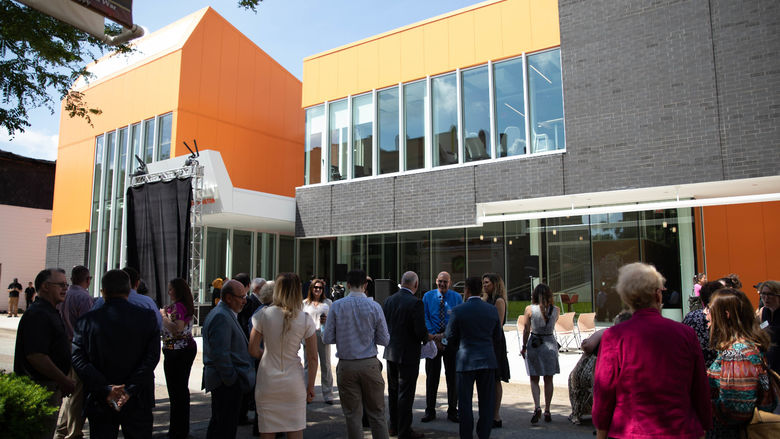
Penn State New Kensington and the Digital Foundry at New Kensington, a collaborative effort between the campus and the Economic Growth Connection of Westmoreland, will use the $1.5 million grant from the Workforce Opportunity for Rural Communities (WORC) initiative to create workforce education and reskilling programs targeting southwestern Pennsylvania.
NEW KENSINGTON, Pa. — Penn State New Kensington has been named one of four new Smart Manufacturing Innovation Centers (SMICs) by the U.S. Department of Energy (DOE) in partnership with the Clean Energy Smart Manufacturing Institute (CESMII). The additions bring the number of SMICs to eight.
“Smart manufacturing makes the American manufacturing sector more productive, energy efficient and competitive on a global scale,” said Kelly Speakes-Backman, assistant secretary for energy efficiency and renewable energy, in the announcement. “DOE’s investments in smart manufacturing will accelerate the adoption of these technologies and processes, while developing a highly skilled manufacturing workforce for the future.”
The New Kensington campus’ distinction will be specifically at its Digital Foundry at New Kensington, slated to open spring 2022. The mission of the Digital Foundry is to drive learning and problem solving through the application of technologies by focusing on education and workforce training; improving manufacturing competitiveness; and providing networking events to increase digital awareness for workers, businesses, academia, students and the community.
“The CESMII team, much like the Digital Foundry team, is coming at their mission around smart manufacturing from the perspective of team members who have lived through the challenges and benefits of implementing these technologies in real-world manufacturing environments,” explained Sherri McCleary, executive director of the Digital Foundry at New Kensington. “We not only share a common mission to leverage smart manufacturing to bring business value to manufactures of all sizes, but we also speak a common language around the technology and value and believe this will be a very positive relationship focused on results.”
According to the announcement, the network of SMICs, including the Digital Foundry at New Kensington, will “allow manufacturers of varying sizes to tap into CESMII’s vast smart manufacturing resources and cultivate the manufacturing workforce of the future.” The focus on workforce development is one that mirrors the goals of the foundry.
“As a SMIC, the Digital Foundry will house access to the CESMII Smart Manufacturing Innovation Platform (SMIP),” said McCleary. “The SMIP will be a CESMII cornerstone for bringing smart manufacturing solutions, learnings and apps that are accessible, affordable and allow manufacturers to implement smart manufacturing by learning from the use cases, technologies and tools already developed across CESSMII’s national network of members and other SMICs.”
The SMIC endorsement is the latest in CESMII-related partnerships between the organization and Penn State New Kensington. In 2018, the campus was one of just 10 projects funded in relation to smart manufacturing initiatives in the United States. The New Kensington-led project, called the Factory 4.0 toolkit, is managed by Joseph Cuiffi, assistant teaching professor and program coordinator of electro-mechanical engineering technology. Earlier this month, the toolkit was used in CESMII’s first endorsed workforce certificate training, “Digital Manufacturing Professional,” held by the New Kensington campus and Digital Foundry.
“We will continue to build on this training to enhance and add to the offerings endorsed by CESMII to prepare the manufacturing workforce at all levels for digital smart manufacturing transformation,” added McCleary.
The Richard King Mellon Foundation awarded $5.5 million in funding for the Digital Foundry at New Kensington. The lab, a collaborative effort between the Economic Growth Connection of Westmoreland and the New Kensington campus support and advisement from the Westmoreland County Industrial Development Corporation (WCIDC) and a priority project identified in the Westmoreland County Comprehensive Plan – Reimagining Our Westmoreland, is currently being built along the city’s Corridor of Innovation, a five-block stretch of Fifth Ave. between the campus’ innovation hub, The Corner, and Westmoreland County Community College-New Kensington. In addition to the foundation’s support, Penn State has also provided a $1 million matching gift, which will help create an endowment for ongoing operating support of the facility, through the Economic Development Matching Program, an initiative of its current campaign, “A Greater Penn State for 21st Century Excellence.”
Corinne Coulson
Manager of Strategic Communications and Marketing







